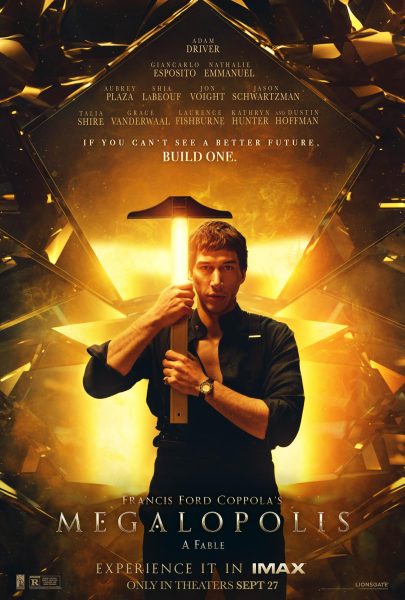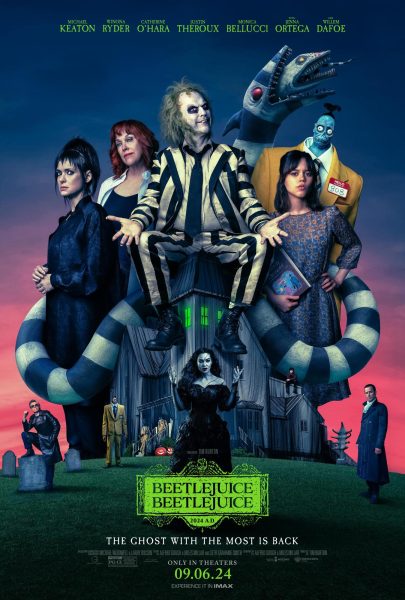REVIEW: ‘Black Panther: Wakanda Forever’ graces movie screens as a touching tribute (Contains Spoilers)
This review contains spoilers. For those that have not yet seen this movie, return to this review afterward to avoid spoilers.
After hitting theaters on Friday, Nov. 11, “Black Panther: Wakanda Forever” proves an instant success for the MCU franchise. An unsurprising verdict, the sequel follows the fan-favorite “Black Panther,” which broke theaters in 2018 with its very-needed inclusion of an African MCU superhero. “Wakanda Forever” now pays tribute to late actor Chadwick Boseman (T’Challa) whilst introducing a new Black Panther in his place. Mystery stirred preceding the premiere with talk of who would be the next to fill the role most important to the people of Wakanda. Ultimately, writers made an expert decision based closely on the comics, placing the role in the hands of a character viewers already know and love.
Director Ryan Coogler’s claim to fame came in 2013 with his debut film “Fruitvale Station.” Winning awards from numerous film festivals, including Sundance and Cannes, it is no surprise that his later career is also breaking records. Notably, his work on “Black Panther” as both writer and director led it to be the first Marvel film to be nominated for and to win an Oscar. The film also became the highest grossing of all time by an African American director. Film critics expect an easy Oscar nomination for “Wakanda Forever,” especially in the wake of the film’s newly introduced civilization.
Taking place in the beloved Wakanda, the film opens with the fictional death of King T’Challa. Boseman, the film’s original Black Panther, died in mid-2020 after a years-long battle with colon cancer. Marvel promised viewers that the actor would not be recast in the sequel. Princess Shuri (Letitia Wright) and Queen Ramonda (Angela Bassett) soon face a character not yet introduced to viewers, Namor (Tenoch Huerta). This new antagonist comes bearing the weight of the effect that T’Challa’s decision to reveal the power of vibranium had on his people. Now that the precious metal has been exposed to the world, various nations demand a stake in its powerful aptitude in battle.
Namor reveals the possession of the metal in his underwater world, Talokan, as a result of the widespread nature of the meteorite that originally brought vibranium to Earth. He demands the capture of a young American scientist, Riri Williams (Dominique Thorne), who has created an apparatus that detects vibranium in the ocean. Dora Milaje leader Okoye (Danai Gurira) and Princess Shuri fight to save the college student while avoiding war with Talokan. Large-scale attacks on Wakanda by the Talokan people during this time bring flooding that takes the lives of many citizens, including Queen Ramonda. War becomes unavoidable as Shuri, influenced by Killmonger (Michael B. Jordan), the original film’s antagonist, decides to avenge her mother’s death.
The introduction of the Talokan people provides a fresh take on the role of Wakanda as the world’s most powerful nation. Equal in power due to the possession of vibranium, Talokan King Namor comes to Wakanda threatening total destruction. A misunderstood anti-hero, the king is the son of a Yucatán woman whose city was ravaged by smallpox following the invasion of Spanish conquistadors. In hopes to fight the disease, a local shaman provides a heart-shaped herb to the town’s people.
The herb turns their skin blue, removing their ability to breathe on land and replacing it with the ability to breathe exclusively underwater. Pregnant with the future king, Namor’s mother gives birth to a mutant creature with winged feet and all of the power that the heart-shaped herb has provided the Wakandans with for centuries. Now facing the same power that once guaranteed her brother’s success in battle, Shuri must recreate the heart-shaped herb that was destroyed by Killmonger in the first film. Once successful, she meets the villain in the astral plane where he urges her to forfeit the high road and defend Wakanda once and for all.
Fight scenes between Shuri and Namor keep viewers on the edge of their seats as both deities seemingly overtake each other throughout the sequence. Sustaining an almost-deadly wound, Shuri recalls her pressing conversation with Killmonger, deciding to take ultimate revenge for her mother’s death by killing the Talokan King. However, in the end, the similarities between them convince the Wakandan Princess to offer Namor a final chance. The powers possessed by Namor guarantee his survival, but the king yields to Wakanda, reestablishing their dominance throughout the world.
The catalyst for the film’s conflict, Ramonda’s death comes early in the film taking viewers by surprise. This addition to the storyline, while ultimately giving Shuri a spot on the throne, also proves a somewhat inappropriate addition to the storyline given the tribute nature that viewers expected in light of Boseman’s passing. With the role of Black Panther assumed later in the film by Shuri, it seems as if the film would have been more cohesive if not overshadowed by Shuri’s grief over her mother’s death. It is also unnecessary for Black Panther to hold the throne, as seen in Shuri’s acceptance of her new role and simultaneous surrender of the throne to M’Baku (Winston Duke) at the end of the film, so this conflict feels like an unneeded addition.
Despite this, the storyline and tribute to the late king are saved with the introduction of Nakia’s (Lupita Nyong’o) son, Toussaint (Divine Love Konadu-Sun). Raised in Haiti, the boy is seen in insignificant snippets throughout the film but is formally introduced to Shuri in the post-credit scene. A breath of fresh air, the boy gives a hopeful tone to the conclusion of the film. This, along with the reinvention of the heart-shaped herb and Shuri’s new role, alludes to the fact that more is in the works for this Marvel Superhero’s storyline, even perhaps, with the eventual reinstation of a king. The last motion picture in Marvel’s Phase Four, it will also be interesting to see if the Talokan storyline is explored more fully as an addition to other comics as the franchise progresses.
A heartfelt film that Marvel lovers of all ages are sure to enjoy, “Black Panther: Wakanda Forever” touches the hearts of the audience with a thoughtful tribute to Chadwick Boseman while keeping the pace of the previous film. Another victory for the Black audience, raving viewers are sad to see the saga conclude. Hopefully, this will only be the start of the more diverse cinema experience that viewers and Hollywood talents alike have been urging for decades.








